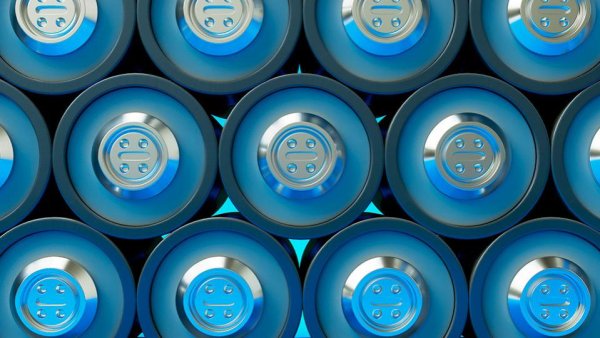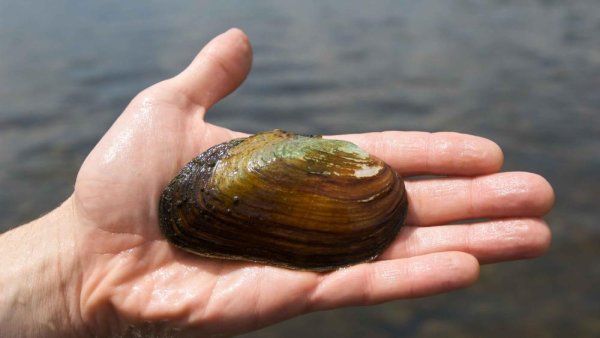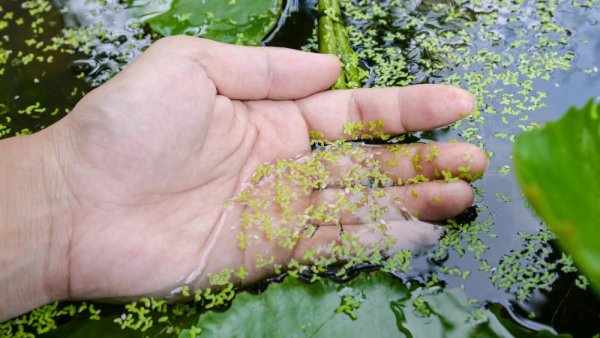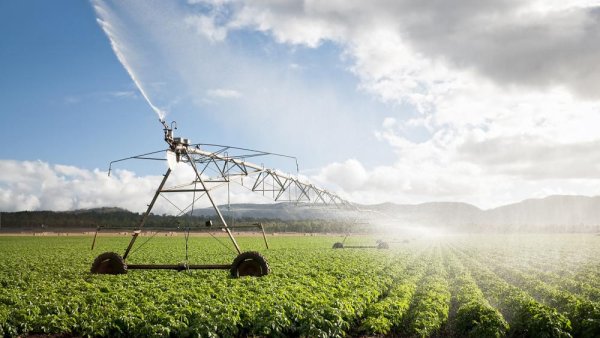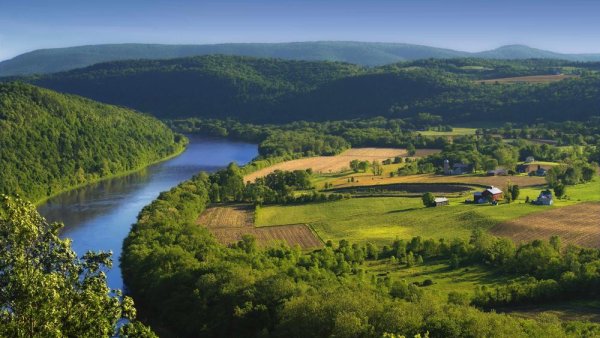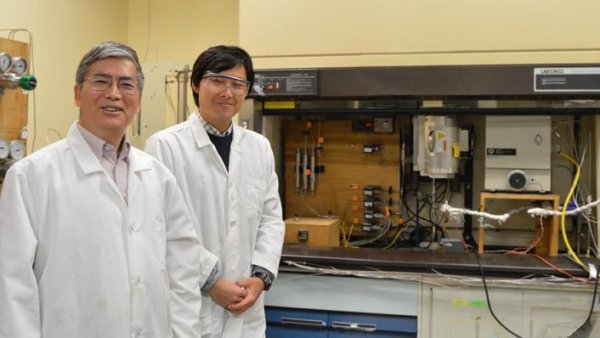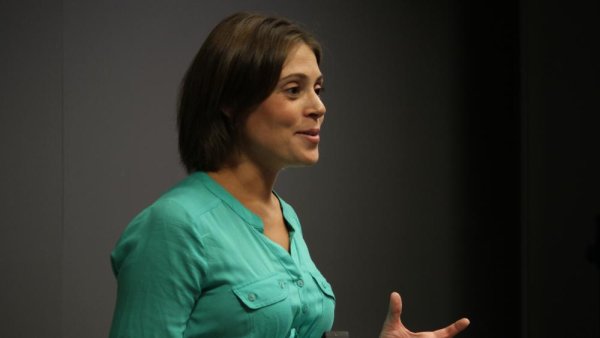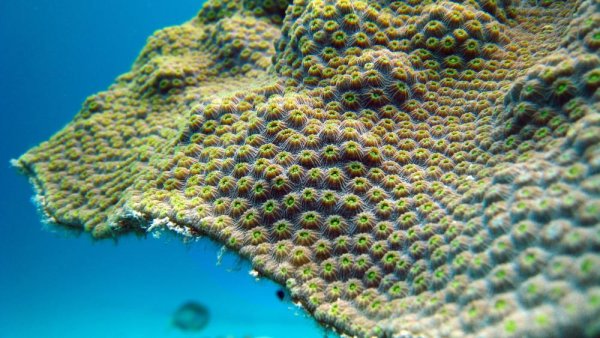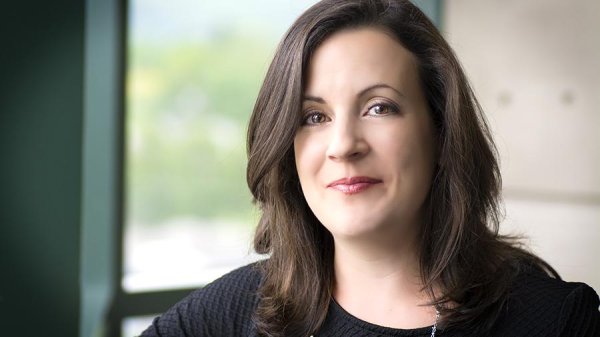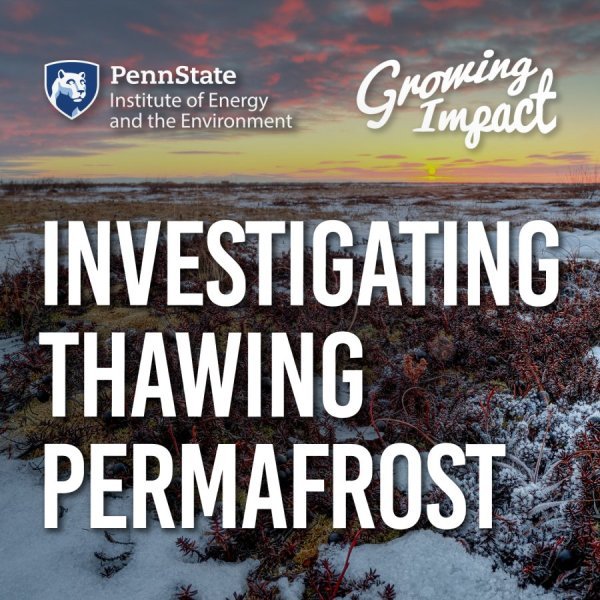Re-Imagining Energy: Generating Energy
| psu.edu
Penn State researchers are developing a range of innovative technologies to harvest the sustainable energy of natural processes to power our future. Part one of a five-part series.
Re-Imagining Energy: Storing Energy
| psu.edu
Penn State researchers are at the forefront of a revolution in materials that's enabling batteries that charge faster, last longer, and are safer than conventional batteries. Part two of a five-part series.
Fracking wastewater accumulation found in freshwater mussels' shells
| psu.edu
Elevated concentrations of strontium, an element associated with oil and gas wastewaters, have accumulated in the shells of freshwater mussels downstream from fracking wastewater disposal sites, according to researchers from Penn State and Union College.
Energizing the food-energy-water nexus: the fortuitous tale of duckweed
| psu.edu
Rachel Brennan knows how precious of a commodity water is. During her time as the director of Penn State's Eco-Machine, her work has involved a helpful little plant that is impacting the food-energy-water nexus.
Larger cities have smaller water footprint than less populated counterparts
| psu.edu
Global sustainability is important now more than ever due to increasing urban populations and the resulting stress it can have on natural resources. But increased populations in cities may lead to greater efficiency, as a team of Penn State researchers discovered when they analyzed the water footprint of 65 mid- to large-sized U.S. cities.
Lab Bench to Commercialization 2018–19 grant recipients announced
| psu.edu
The Eberly College of Science's Office for Innovation has awarded three faculty members $75,000 each toward commercializing intellectual property from their research.
NSF funds $3 million graduate training program focused on Food-Energy-Water
| psu.edu
The National Science Foundation has awarded a $3 million grant to an interdisciplinary team of Penn State researchers to create a new graduate program that will train students to find solutions to real-world problems facing Food-Energy-Water (FEW) systems.
Carbon dioxide-to-methanol process improved by catalyst
| psu.edu
Dramatic improvements have been made to the process of converting carbon dioxide, a greenhouse gas, to methanol, a fuel and building block for a wide range of everyday materials, according to Penn State researchers.
New Faculty Academy members continue work on student engagement projects
| psu.edu
Four new members were accepted this year into the Faculty Academy, which provides funding for educators to create engagement opportunities and models for students on the local, regional and national level.
Diverse symbionts of reef corals have endured since 'age of dinosaurs'
| psu.edu
Coral-algal partnerships have endured numerous climate change events in their long history, and at least some are likely to survive modern-day global warming as well, suggests an international team of scientists.
Sankey first online educator named Faculty Academy Fellow
| psu.edu
Haley Sankey has always enjoyed finding creative ways to reach out to her adult learners. Now she’s hoping to use that creativity to improve learning on campus and beyond. Sankey, an assistant teaching professor at the John A. Dutton e-Education Institute, recently became the first Penn State World Campus faculty member selected as a fellow in the Faculty Academy for Engaged Scholarship.
Penn State hydrologist Elizabeth Boyer honored by American Geophysical Union
| psu.edu
Elizabeth W. Boyer, associate professor of water resources in Penn State's College of Agricultural Sciences, has been honored with the 2018 Witherspoon Lecture Award by the American Geophysical Union.


